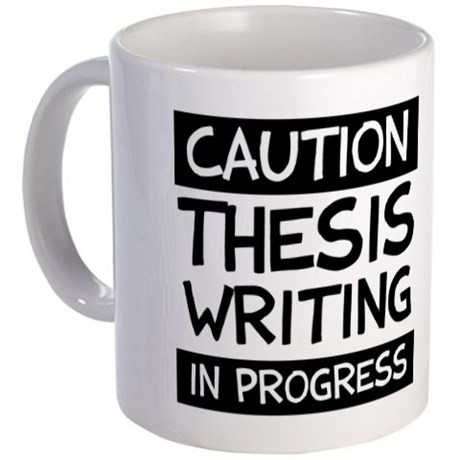
August 8, 2017, by Andrew
Thesis Writing 101
If you’re currently writing up a thesis of some descript, the chances are you’ve found yourself doing some serious staring into the abyss, hoping for some prophetic wisdom to emerge out of thin air and manifest itself as a discussion chapter on your laptop. After extensive and rigorous scientific testing and academic scrutiny (aka procrastination) I can confirm, no such phenomenon occurs – no matter how long you maintain a ‘thoughtful pose’. Instead, here’s a few ideas to keep the ball rolling on your writing.
- Start every day with a ‘to do’ list. Write small, achievable goals and enjoy the smug (morsel of) satisfaction as you tick them off throughout the day.
- Spend a while just spam writing. Write down the point you’re trying to make and the accompanying citations in ludicrous detail. Really delve into the literature and explain it in its fullest form. – Then go back, and delete anything that isn’t absolutely vital, and you’ll be left with an academic gold mine.
- Stop writing all together. Never underestimate the importance of taking breaks from monotonous tasks. Move onto a different task/ section every hour, or take a quick walk or tea break.
- Print everything out and grab some highlighters. Reading off a screen becomes mind-numbing at best, and retinal burning at worst (or maybe that’s a myth… probably a myth). Print off the chapter you’re working on and, after apologising profusely to the planet for your self-indulgent waste of the ever-shrinking rainforests, go to town on it with a highlighter or twelve. You’ll probably find all sorts of errors, syntactical cock-ups and general nonsense that you wrote at 7pm after your 9th coffee of the day.
- Read it to someone of a different discipline. If you’re trying to explain a technically challenging concept/theory/mechanism etc, but not sure if you’re being coherent, then grab a friend who’s not so familiar with the field and have them read it. If they can’t so much as follow it, it probably needs revising. After all, ‘if you can’t explain it simply, you don’t understand it well enough.

Some pretty practical points being made in the post and the best part is about planning to delete sentences which no longer add any value to the thesis after a first read. Writing in small bursts also helps in not getting carried away in a specific section and it increases the variety of perspectives & points in your paper. I must add based on my own experience, that classifying the literature being reviewed in different folders and linking these topic sub-categories on a chart helps in drawing the big picture and how they all are part of a single story. Looking forward to more such practical insights from you Andrew! 🙂